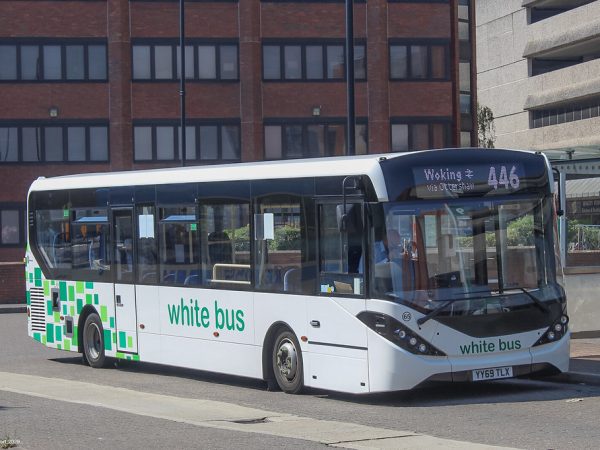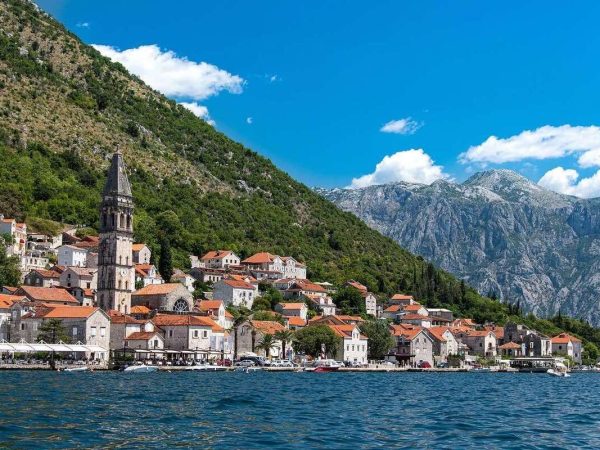Sustainable Travel: Responsible Tourism for a Greener Future

In recent years, the concept of sustainable travel has gained significant traction, as people become more conscious of the environmental impact of their actions. Sustainable travel, also known as responsible tourism or eco-tourism, refers to the practice of exploring and experiencing new places while minimizing negative impacts on the environment, economy, and local communities. By making conscious choices and adopting sustainable travel practices, we can contribute to a greener future. This article delves into the importance of sustainable travel, highlights its benefits, and provides practical tips to incorporate responsible tourism into our travel plans.
The Importance of Sustainable Travel
Sustainable travel is crucial for several reasons. First and foremost, it helps to preserve the natural environment and protect biodiversity. Many popular tourist destinations, such as coral reefs, rainforests, and wildlife reserves, are delicate ecosystems that can be easily damaged by irresponsible tourism practices. By practicing sustainable travel, we can minimize our impact on these vulnerable environments and ensure they are preserved for future generations.
Secondly, responsible tourism promotes cultural preservation and supports local communities. When travelers engage with local communities and respect their customs, traditions, and heritage, it creates a positive cultural exchange. Additionally, supporting local businesses, such as locally-owned accommodations, restaurants, and tour operators, helps to stimulate the local economy and provides income opportunities for the community members.
Furthermore, sustainable travel contributes to the fight against climate change. The transportation sector, particularly air travel, is a significant contributor to greenhouse gas emissions. By opting for greener transportation options like trains or buses, choosing direct flights, or even offsetting our carbon footprint through verified offset programs, we can reduce our carbon footprint and mitigate the negative environmental impacts of our travels.
Benefits of Sustainable Travel
Preservation of Natural and Cultural Heritage:
By practicing sustainable travel, we can help conserve and protect natural and cultural sites, ensuring that they remain intact for future generations. This allows us to continue enjoying these unique destinations and enriching our lives through their beauty and diversity.
Support for Local Communities:
Responsible tourism ensures that local communities benefit from tourism activities. By engaging with locals, using locally-owned accommodations and services, and buying locally-made products, we contribute to the economic growth and development of the community. This, in turn, creates a more sustainable and prosperous future for the local residents.
Reduced Environmental Impact:
Sustainable travel focuses on minimizing environmental harm. By choosing eco-friendly accommodations, using public transportation or walking and cycling whenever possible, conserving water and energy, and minimizing waste generation, we can significantly reduce our environmental footprint and contribute to the preservation of the planet.
Cultural Exchange and Personal Growth:
Sustainable travel encourages meaningful interactions with local communities, allowing for a deeper understanding of different cultures, customs, and ways of life. Such experiences can foster personal growth, broaden perspectives, and promote empathy and understanding among travelers.
Long-term Economic Benefits:
By embracing sustainable travel practices, destinations can attract responsible travelers who are willing to spend more on authentic experiences that support local communities and the environment. This leads to long-term economic benefits and encourages destinations to prioritize sustainable development.
Tips for Sustainable Travel
Reduce Carbon Footprint:
Opt for greener transportation options like trains, buses, or shared rides whenever possible. If air travel is necessary, choose direct flights to minimize carbon emissions. Consider offsetting your carbon footprint by supporting verified carbon offset programs that invest in renewable energy projects or forest conservation initiatives.
Conserve Resources:
Be mindful of your water and energy consumption while traveling. Take shorter showers, reuse towels and bed sheets, turn off lights and electronics when not in use, and avoid excessive air conditioning or heating. Carry a reusable water bottle and refill it instead of buying single-use plastic bottles.
Respect Local Culture and Customs:
Research and learn about the local customs, traditions, and etiquette of the destinations you visit. Respect sacred sites, dress appropriately, and be mindful of your behavior and language. Engage with locals, learn from them, and support their cultural practices and initiatives.
Support Local Businesses:
Choose locally-owned accommodations, restaurants, and tour operators that prioritize sustainable practices and support the local economy. Buy locally-made souvenirs and products, eat at local eateries, and participate in community-based tourism initiatives that empower and benefit local communities directly.
Minimize Waste:
Reduce your waste generation by carrying a reusable shopping bag, using a refillable toiletry kit, and saying no to single-use plastics. Dispose of waste responsibly by using designated recycling bins or carrying your trash until you find an appropriate disposal site.
Practice Responsible Wildlife Tourism:
When engaging in wildlife experiences, choose operators that prioritize animal welfare and conservation. Avoid activities that involve direct contact with wild animals or contribute to their exploitation. Instead, opt for responsible wildlife encounters that promote education, conservation, and respect for the animals and their habitats.
Be Mindful of Natural Environments:
Leave natural environments as you found them. Avoid littering, damaging vegetation, or disturbing wildlife. Stick to designated trails and paths and follow any guidelines or regulations provided by park authorities or local communities.
Conclusion
Sustainable travel is not just a trend but a necessity for a greener future. By adopting responsible tourism practices, we can protect and preserve our natural and cultural heritage, support local communities, and reduce our environmental impact. The benefits of sustainable travel extend beyond individual experiences, contributing to the overall well-being of destinations and creating a positive legacy for generations to come. Let us embrace sustainable travel and make responsible choices, ensuring a harmonious balance between exploration, enjoyment, and environmental stewardship.
FAQs
Q1: Is sustainable travel more expensive than regular travel?
Sustainable travel doesn’t necessarily have to be more expensive than regular travel. While eco-friendly accommodations and responsible tour operators may sometimes have higher upfront costs, there are plenty of affordable sustainable travel options available. For instance, choosing public transportation or walking instead of using taxis, reducing energy and water consumption, and opting for locally-owned budget accommodations are cost-effective ways to practice sustainable travel.
Q2: How can I ensure that my chosen accommodations are truly sustainable?
When selecting accommodations, look for certifications or affiliations with recognized sustainable tourism organizations. These organizations often have specific criteria that accommodations must meet to be considered sustainable. Additionally, read reviews from other travelers and check the accommodations’ websites for information on their sustainability practices. Don’t hesitate to reach out to the accommodations directly and ask about their eco-friendly initiatives, such as energy-saving measures, waste management, or community support programs.
Read More: The Best Travel Blogs to Follow











